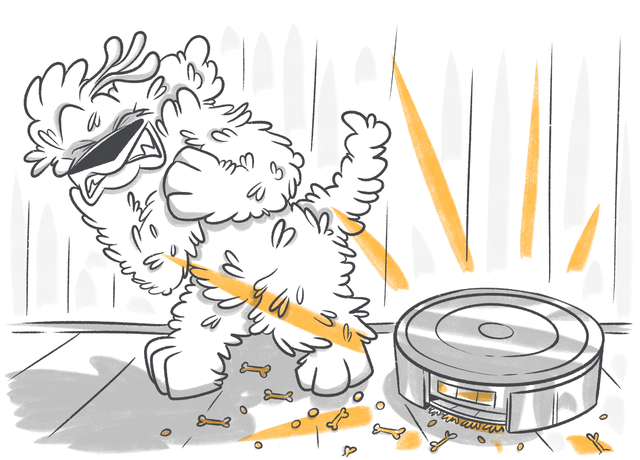We all know that dogs are our loyal companions, always by our side through thick and thin. But have you ever wondered if they, too, can experience heart attacks? It's a question that has crossed the minds of many dog owners.
This article will explore the possibility of dogs having heart attacks, including their symptoms, causes, diagnosis, and treatment. So, let's dive in and uncover the truth about our canine companion's heart health!
Stop Googling - Ask a Real Vet
Content:
- Do Dogs Have Heart Attacks
- Symptoms of a Dog Heart Attack
- Causes of a Heart Attack in Dogs
- Diagnosis and Treatment of a Dog Heart Attack
- How Can the Emergency Fund Help with Treatment
- FAQ
- Conclusion
Do Dogs Have Heart Attacks
Dogs do have heart attacks, although they are not as common as they are in humans. Heart attacks in dogs happen suddenly and are a life-threatening medical emergency. Causes of heart attacks in dogs range from congenital disabilities to bacterial heart infections.
But what exactly is a heart attack in dogs? Heart Attacks vs. Heart Failure
A heart attack in dogs, also known as a myocardial infarction, occurs when the blood supply is interrupted to a portion of the heart muscle. We will discuss the causes below, but a heart attack is sudden (acute). A dog may seem in perfect health and suddenly collapse while you are playing fetch.
We should note that there is a difference between heart attacks and heart failure. Heart failure is a chronic condition that typically develops gradually over time. According to sources on canine cardiology, there is a lot of overlap in the causes of heart failure and heart attacks, and one can lead to the other.
Symptoms of a Dog Heart Attack
First, let's look at the signs that might indicate a heart attack in dogs. It's important to note that while dogs can experience heart-related issues, the concept of a "heart attack" in dogs slightly differs from what we commonly associate with humans. Nevertheless, some symptoms might resemble those seen in humans during a heart attack.
Signs your dog may be having a heart attack include:
- Rapid or excessive breathing, possibly with white foam around the mouth;
- Vomiting;
- Fever;
- Elevated pulse or heartbeat;
- Discomfort or soreness in the forelimbs;
- Mental disorientation or bewilderment;
- Trouble getting up or maintaining an upright position;
- Fatigue, lack of energy, or sluggishness;
- Nervousness, uneasiness, or restlessness;
- Inability to move or be mobile;
- Convulsions and seizures;
- Collapsing and death.
When dogs have heart attacks, they happen quickly, and the dog can die quickly without intervention. If your dog does collapse and appears to be having a heart attack, it is vital to know how to do CPR on your dog.
Remember, these symptoms can also be associated with other health conditions, so it's crucial to consult a veterinarian for an accurate diagnosis.
If you have a dog that has a heart problem like a murmur or a congenital disability, you want to keep a close eye on them. A Petcube Camera when you are away is essential to spot any signs of trouble and allows you to alert somebody close by even when you aren't.
Causes of a Heart Attack in Dogs
The primary cause of heart attacks in humans is atherosclerosis, where sticky plaque builds up in the arteries, making them too narrow for blood to flow through properly. However, dogs are naturally resistant to atherosclerosis, so it's a myth that this is a common cause of pet heart attacks.
But what causes heart attacks in dogs? Studies show several primary conditions behind a myocardial infarction (heart attack) in dogs. It's worth noting what they are because many of them can be treated before they give your dog a heart attack.
- Bacterial Endocarditis
This is an infection of the heart's valves or inner lining caused by bacteria. The infection can damage the heart tissue and create conditions that increase the likelihood of heart attacks.
Studies show that bacterial endocarditis can start with dental disease in dogs.
This is because the bacteria from dental disease can get into the bloodstream and travel to the heart. So basic dog dental care is essential to avoid cardiac issues like heart attacks.
- Aortic and Pulmonic Stenosis
These are conditions where the valves in the heart that regulate blood flow become narrow or constricted. This narrowing makes it harder for the heart to pump blood efficiently, leading to strain and potential heart attacks.
Research shows that these are congenital defects that dogs are born with and that are inherited from their parents. You may only notice that your dog has this if a vet picks up on a heart murmur during a checkup. In severe cases, early signs could be dogs that get tired quickly (fatigue) and struggle with exercise (collapsing from exercise intolerance).
- Patent Ductus Arteriosus
This is also a congenital heart defect where a blood vessel called the ductus arteriosus, which is supposed to close shortly after birth, remains open. This causes abnormal blood flow and can stress the heart, increasing the risk of heart attacks.
Studies show that this is also hereditary and tends to lead to chronic heart failure in dogs (CHF), often in the first two years of life.

-
Idiopathic Hypertrophic Cardiomyopathy
This is a rare heart disease characterized by thickening of the heart muscle, making it harder for the heart to pump blood effectively. The increased workload on the heart can lead to heart attacks or heart failure in severe cases, according to research. -
Primary Coronary Thrombosis associated with Renal Disease
Dogs with kidney disease may develop clotting abnormalities, leading to the formation of blood clots in the coronary arteries. These clots can block blood flow to the heart, resulting in heart attacks.
You can read more in our article on the signs and symptoms of kidney problems in dogs.
- Coronary Vasculitis and Thrombosis
Vasculitis refers to inflammation of blood vessels, including those supplying the heart. Inflammation can lead to the formation of blood clots, blocking blood flow and potentially causing heart attacks.
NCBI research specifies that coronary thrombosis in dogs occurs when a blood clot gets stuck in the aorta and interrupts blood flow to the heart, possibly causing a heart attack. This is how vasculitis can cause thrombosis.
- Arrhythmia
Arrhythmias are abnormal heart rhythms that can disrupt the heart's normal pumping function. In some cases, severe arrhythmias can lead to insufficient blood supply to the heart, triggering a heart attack or heart failure.
There are many causes of arrhythmia. They include:
- Age;
- Stress;
- Heart birth defects;
- Insufficient nutrients like thiamin or potassium cause imbalances;
- Poisoning;
- Respiratory disease;
- And even gastrointestinal disease.
- Other Causes of Heart Attacks In Dogs
As you may have noticed, veterinary sources show that many of the common causes of a heart attack in dogs are birth defects (also called congenital defects). Other congenital heart defects, such as atrial or ventricular septal defects (holes in the heart), can disrupt normal blood flow and strain the heart. Over time, this strain can contribute to the risk of heart attacks.
Other underlying health issues, such as heartworm disease, tumors, heart valve abnormalities, or an enlarged heart (cardiomyopathy), can also increase dogs' risk of cardiac events. Age, breed, obesity, and a sedentary lifestyle can further elevate the chances of heart problems.
Even conditions like diabetes or hypothyroidism could increase the risk of a canine heart attack.
Diagnosis and Treatment of a Dog Heart Attack

If you suspect your dog might be experiencing a heart attack, seeking immediate veterinary attention is crucial. The veterinarian will perform a thorough examination, including listening to the heart, taking X-rays or ultrasounds, and conducting blood tests to evaluate heart function. They will also perform emergency procedures, such as resuscitation, to help your dog survive the cardiac episode.
Once a diagnosis is confirmed, the treatment plan will depend on the severity of the condition that may have caused the heart attack. Veterinarians may prescribe medication to improve heart function and manage symptoms. Surgery or interventional procedures may sometimes be necessary to address blockages or repair heart valves.
Do not try to treat any heart disease or other issues at home with natural remedies that your veterinarian does not approve of. Heart problems are deadly, and dogs need the best veterinary care available.
How Can the Emergency Fund Help with Treatment
Dealing with a heart attack in your beloved dog can be emotionally and financially challenging. That's where having an Emergency Fund for veterinary care can provide some relief. If your dog has a heart attack, the last thing you want to worry about is the unexpected vet bill.
Petcube, a leading provider of pet care technology, offers an emergency veterinary fund that covers up to $3000 in emergency vet bills for just $1 a day.
FAQ
Can a Heart Attack In Dogs Lead To Sudden Death?
Sadly, when a dog has a heart attack, everything happens very rapidly. Your dog can go from panting and restless to collapsing and dying very suddenly, in minutes or even seconds.
If you see your dog collapse, performing CPR immediately and getting to emergency services as quickly as possible is vital. Treating any underlying heart problem before it can lead to a heart attack is also important.
Conclusion
While dogs may not experience heart attacks in the same way humans do, they can suffer from various cardiac events that require prompt medical attention. Knowing the symptoms and causes and seeking immediate veterinary care is vital for a dog to survive a heart attack.
Was this article helpful?
Help us make our articles even better









